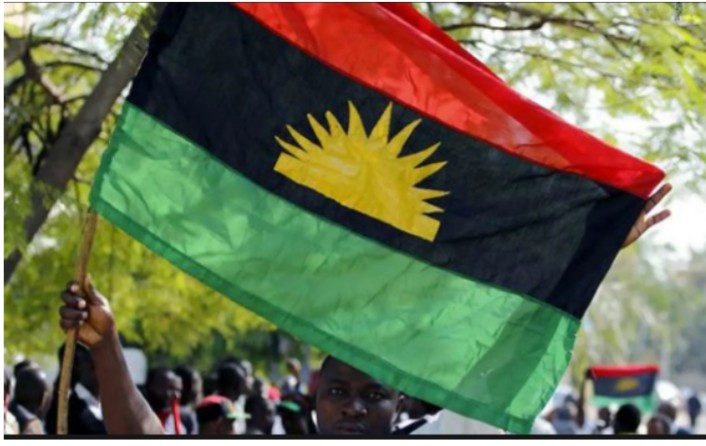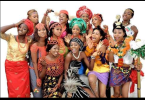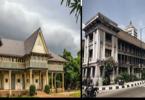The Nigerian Civil War (1967 to 1970), fought for two and a half years, was an event that left scars that are yet to heal on the nation. It badly impacted Nigeria’s fragile democracy, which only barely emerged from British colonial control. To worsen it, both Nigeria’s First Republic civilian government, and the Military that took over, had been accused of numerous offenses. They range from widespread mismanagement of the nation’s resources, ethnic marginalization, and political corruption. The war also slowed down the economic, educational, technical and other forms of development nationwide for years to come.
Many literary sources point out that the Nigerian Civil war (also called the Biafran War) was strongly divided along both ethnic and religious lines. Certain historians as well as victims of the war – particularly Igbos – see it as a form of calculated genocide against that ethnic group. That belief was strongly fuelled by events that pitted the Northerners against the Igbos just before the war. In this article, we will examine the lingering effects and enduring legacy of the Nigerian Civil War, both positive and negative.
Nigeria: A Shaky Structure Created to Serve the British Government
The whole region that was mapped out as the Colony and Protectorate of Nigeria took physical form in the year 1914. In January 1914, Lord Frederick Lugard signed a document to consolidate the two erstwhile separate British colonies of Nigeria, over which he was appointed Governor-General. These were the Northern Nigeria Protectorate and the Colony, and the Protectorate of Southern Nigeria. The consolidation, unfortunately, had two negative consequences.
Firstly, the new Nigerian nation was (and still is) a nexus of over 300 distinct ethnic groups with different traditions and origins. Though they had been neighbors for decades (if not centuries), each tribe strove to preserve its identity and land from being subsumed. The British rulers had little or no recognition of the different ethnic groups. Nor did it care much if a crisis of cultural identity existed or not. Fragmentation along ethnic lines, and mutual distrust between tribes, had already been an ongoing problem that received practically no attention before Nigeria’s independence.
Secondly, the British government chose to exert its control on Northern Nigeria through the traditional rulers – a system called ‘Indirect Rule’. The traditional systems of governance were preserved in the North; but the modern educational system was poorly propagated. However, the Southern states were resource-rich, crude oil rich, and major centers of trade located close to Nigeria’s seaports. The British saw the southern region as a strategic area to be controlled DIRECTLY to their benefit.
The traditional systems of governance in the South were subdued under British dominion. British systems of government were also directly implemented in the southern regions. And western education was promoted in the South to the end of providing skilled and semi-skilled workers to directly serve the British rulers. Thus the North and South were ruled in starkly different ways that laid the foundation for disunity, and the lack of a Nigerian identity.
A Quick Timeline of Events Before the Nigerian Civil War
Following Nigeria’s independence in 1960, the First Republic was birthed. This period marked Nigeria’s first attempt at democracy and self-governance. And the government was styled after the British parliamentary system. But there was serious ethnic tension in the North.
The Igbos, who have been prolific traders and adventurers over time, conducted their businesses in many locations across Nigeria. The commercial dominance of the Igbos was seen as a threat by the Northerners. The Western region was less aggressive in their stand (though they appeared to have some resentment as well). There was also the perception that the Igbos struggled to take political control over Nigeria.
On the other hand, the ruling party of Nigeria at that time (Northern People’s Congress) were all Hausa-Fulani. The Northerners were able to secure most of the parliamentary seats in the Nigerian government, following Nigeria’s independence. Again, the Premier of Northern Nigeria, Sir Ahmadu Bello, worked hard to make Northerners occupy the majority of civil service jobs up North. This was in an attempt to help more Northerners acquire western education, and have more representation in the affairs of their own region. The Southerners and Europeans were thus systematically pushed out of civil service jobs in the North, and therefore not happy.
There were also accusations of electoral fraud in the 1959 elections, as well as a gradually failing economy. An ethnic, religious and political crisis had begun. Unfortunately, Sir Ahmadu Bello and Nigeria’s first Prime Minister, Abubakar Tafawa Balewa, were killed in the 1966 military coup. Some other top shots in Western Nigeria (both civilian and military) were also killed. The mutiny was led by Major Kaduna Nzeogwu and other officers (mostly Igbo). Major General Johnson Aguiyi-Ironsi (an Igbo) briefly took control of the Nigerian government for six months during that period. In response, a large-scale massacre and displacement of Igbos from the North reportedly commenced.
The Nigerian Civil War: A Major Face-off Between Gowon and Ojukwu
Within the same 1966, a counter-coup also took place; Aguiyi-Ironsi was overthrown and assassinated. In the aftermath, General Yakubu Gowon took over the Nigerian government. The then Governor of the Eastern Region, Lieutenant-Colonel Odumegwu Ojukwu promptly reacted to the series of coups, counter-coups and anti-Igbo massacres taking place up North. He instructed Igbos residing in the North to return to their homeland.
To ward off impending doom, delegates from Nigeria’s military government, and of the Eastern region, met together at Aburi (in Ghana) and struck a peace accord. A Decree No 8 to enforce the Aburi accord was established. However, four months later, General Gowon went ahead to split the Eastern region into three states. Thus he split every region of the country, and created the first 12 states of the federation. This was without consent or consultation with the leaders of any of the former regions of Nigeria. Ojukwu was pressured by his kinsmen to declare the cessation of the entire Eastern region. He thus declared the Republic of Biafra on May 30, 1967.
The Nigerian Military government declared war against the Biafran movement, citing treason and an attempt to destroy the unity and sovereignty of Nigeria. A 30-month war began, which was fought predominantly in the southeast. It inspired a large global humanitarian intervention from Igbos in the diaspora and some world bodies. There was a series of lobbying by the Igbo diaspora, who rallied support for the Biafran movement and people. It went on until the federal troops occupied the ports at Port Harcourt. Unfortunately, they cut off all food and weapon supplies from the Biafran forces and people.
Weakened by the widespread hunger and limited access to the external world, the Biafran forces surrendered to the federal forces in January 1970. Thousands of both soldiers and civilians were killed; even more were killed by famine and hunger. An estimate of between 500,000 and 3 million people altogether died during the Nigerian Civil War. And General Gowon, the leader of Nigeria’s federal forces, declared that there was ‘No Victor, No Vanquished’.
Lessons and Consequences of the Nigerian Civil War
True that the unity and sovereignty of Nigeria was preserved at the end of the Nigerian Civil War – in political terms. It also increased the powers of the national government, very likely in a disproportionate way. The subsequent regimes following the Gowon-led government quickly took advantage of this federal supremacy (and even increased it) in many ways.
But in reality, the unofficial war of religious, ethnic and political divide continues to rage in Nigeria, long after the Biafran war ended. The Northerners (especially the Hausa-Fulani) have retained a disproportionately larger control of political power in Nigeria, to the detriment of other tribes. Many national policies have also remained biased against some regions of the country (especially those in the Southeast and South-south).
The economic and infrastructural development of the nation have also been badly hindered. Additionally, so many public facilities, commercial and private properties were destroyed, which have taken years to rebuild. It has also engendered a widespread refusal to support authentic Nigerian goods and services; and there is a general lack of national identity.
Another sad offshoot of the Biafran war was a noticeable spike in the number and complexity of crimes nationwide. According to some historians, survivors of the war developed both aggressive and cunning methods of exploiting other people in order to survive. As such, fraud, extortion, and armed violence became commonplace in Nigeria, and stubbornly continued after the war. It led to a full-blown prevalence of organized fraud (nicknamed ‘419’ after Decree 419) which is now a stain on Nigeria’s international reputation.
Nevertheless, concerned Nigerians are still full of hope. That any war on the same scale as that of the Nigerian Civil War must no longer occur. There are also ongoing efforts to restore not just ethics, law and order into the various sectors of the nation. But also to further encourage intermarriage, cooperation, solution mindset, and looking beyond every existing divide into one Nigeria that truly works for every citizen.








